
Mastering English Grammar as an Adult: The Indispensable Role of Worksheets
In today’s interconnected world, proficiency in English is no longer just an asset; it’s often a necessity. From navigating professional landscapes and excelling in academic pursuits to fostering clearer personal communication, strong English grammar skills underpin effective interaction. While many individuals acquire foundational English during their schooling, the nuances and complexities of the language often remain a stumbling block, especially for adults. Whether you’re a non-native speaker aiming for fluency or a native speaker looking to polish your written and spoken English, the journey to grammatical mastery can seem daunting. This is where adults grammar worksheets emerge as an invaluable, practical, and highly effective tool.
This comprehensive article will delve into why adults specifically benefit from targeted grammar practice, what constitutes effective grammar worksheets for mature learners, how to integrate them into a busy schedule, and where to find high-quality resources to aid your linguistic development.
Why Adults Need Specific Grammar Focus
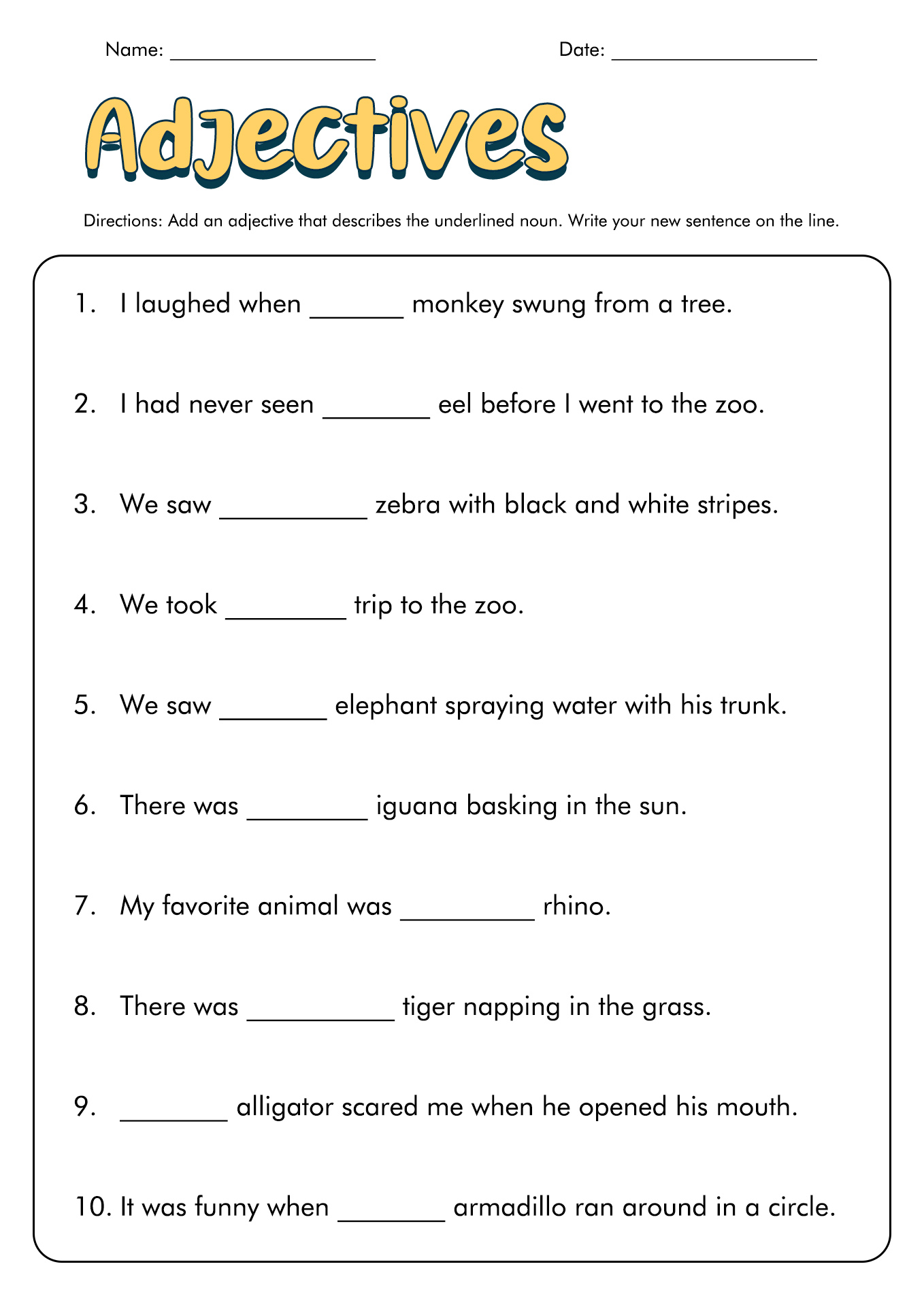
The learning journey for an adult is distinctly different from that of a child. Adults bring a wealth of life experience, established learning habits (good and bad), and often, a more immediate, practical motivation for learning.
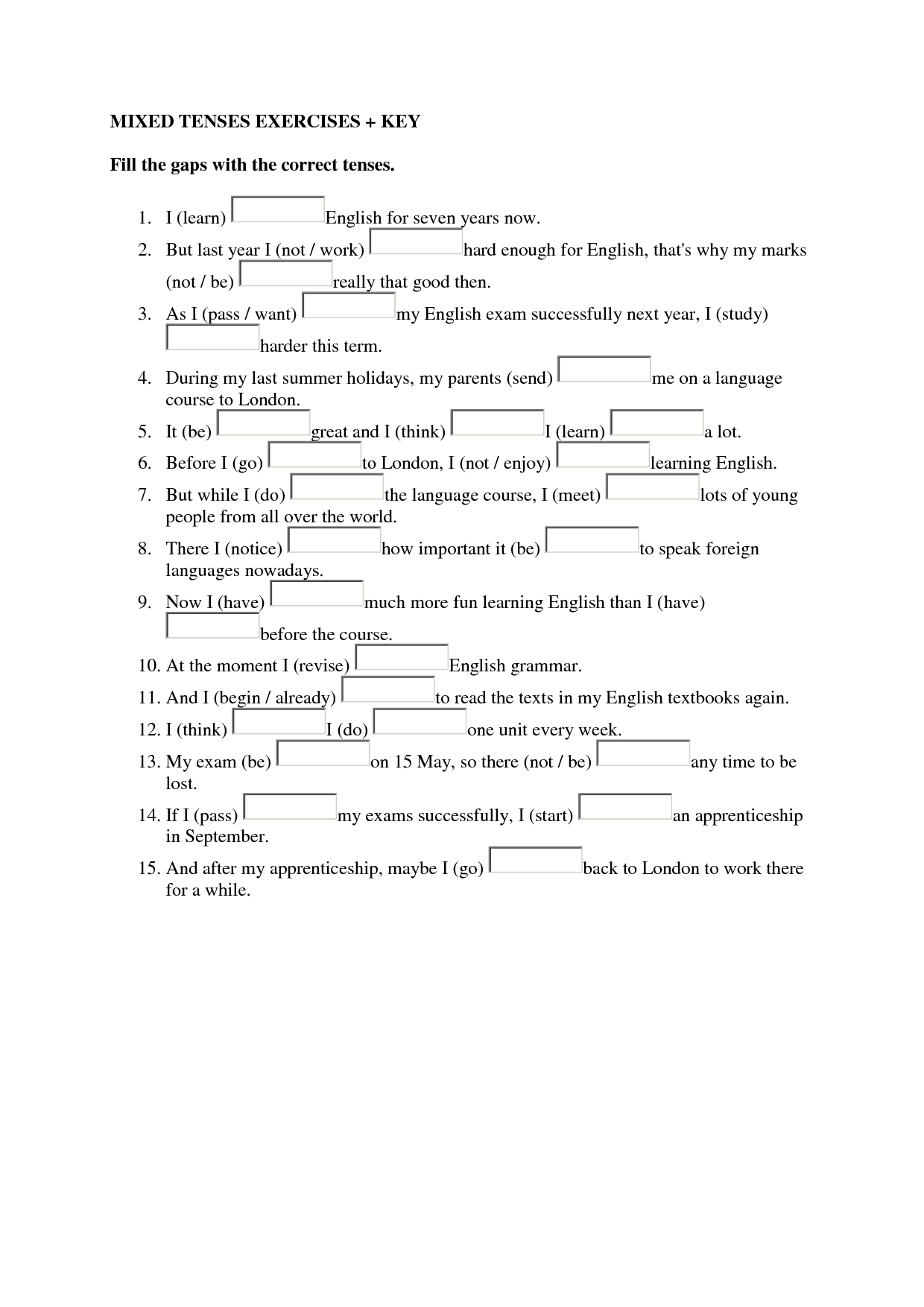
- Filling Knowledge Gaps: Many adults, regardless of their native language, may have gaps in their foundational grammar knowledge. Perhaps they didn’t fully grasp certain concepts in school, or their curriculum didn’t cover specific rules relevant to their current needs. For non-native speakers, the rules of English grammar can significantly differ from their mother tongue, leading to common errors.
- Addressing Fossilized Errors: For advanced non-native speakers, or even native speakers who have developed poor grammatical habits, errors can become "fossilized" – deeply ingrained and difficult to correct without conscious effort. These errors often persist because they don’t impede basic communication, but they can hinder professional advancement or academic success.
- Professional and Academic Advancement: In the workplace, clear, grammatically correct communication is paramount. Emails, reports, presentations, and client interactions all demand precision. Similarly, in academia, well-structured and grammatically sound essays and research papers are crucial for conveying ideas effectively and achieving good grades. Poor grammar can undermine credibility and clarity.
- Building Confidence: Struggling with grammar can lead to a lack of confidence in speaking or writing. This hesitation can limit participation in discussions, networking opportunities, and even social interactions. Dedicated grammar practice builds a solid foundation, allowing adults to communicate with greater assurance.
- Targeted Learning: Unlike children who might learn grammar more organically through immersion, adults often benefit from a structured, rule-based approach that addresses specific problem areas directly. Adults grammar worksheets provide precisely this kind of targeted practice.
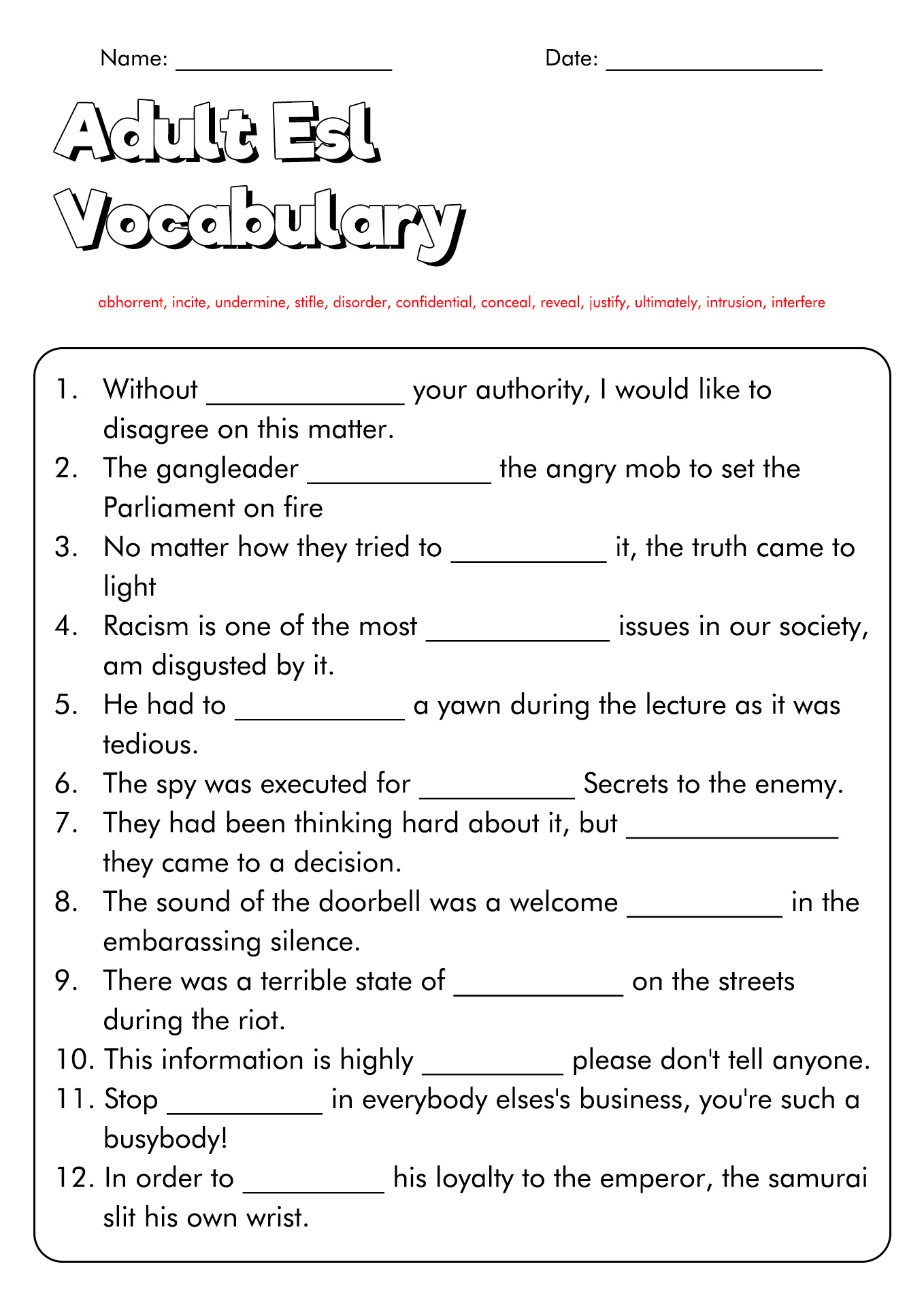

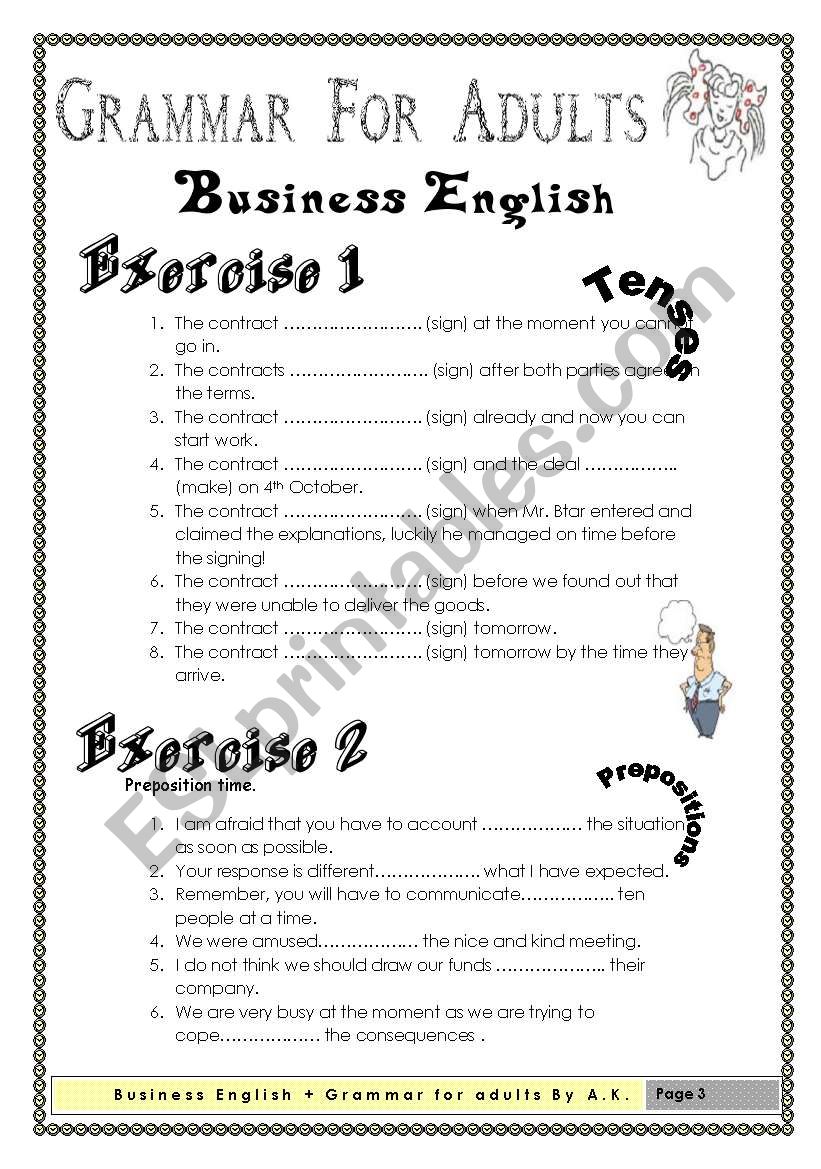
What Makes Effective Adults Grammar Worksheets?

Not all grammar worksheets are created equal, especially when catering to adult learners. Effective adults grammar worksheets should possess several key characteristics to maximize their utility and impact:
- Clear and Concise Explanations: Adults appreciate efficiency. Worksheets should include brief, easy-to-understand explanations of the grammar rule being practiced, avoiding overly academic jargon.
- Relevant and Practical Examples: Examples should resonate with adult life. Instead of sentences about children playing, examples related to business meetings, travel, health, technology, or social issues will be more engaging and memorable.
- Varied Exercise Types: To keep learning dynamic and reinforce understanding, worksheets should offer a range of exercise formats:
- Fill-in-the-blanks: Good for testing specific word choices (e.g., prepositions, articles, verb tenses).
- Sentence Correction: Challenges learners to identify and fix errors, promoting critical thinking.
- Error Identification: Similar to correction but focuses on pinpointing the problem.
- Rewriting/Sentence Transformation: Encourages understanding of sentence structure and style.
- Short Answer/Open-ended Questions: Allows for more creative application of rules.
- Contextualized Paragraphs: Applying grammar rules within a short text, mimicking real-world writing.
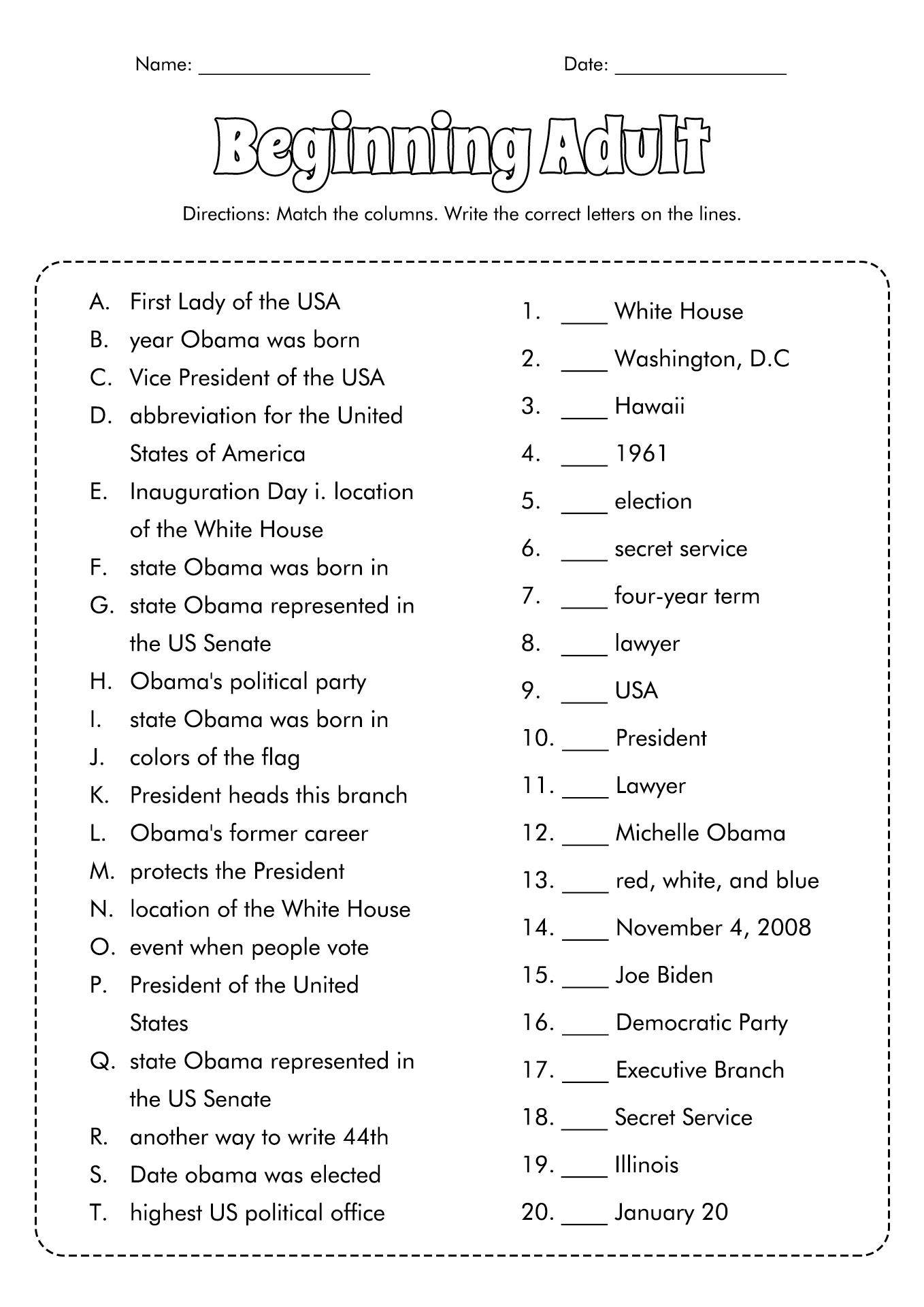
- Answer Keys: Self-correction is a vital part of adult learning. Comprehensive answer keys allow learners to check their work immediately, understand their mistakes, and reinforce correct usage.
- Progressive Difficulty: Worksheets should ideally progress from simpler concepts to more complex ones, building upon previously learned material. This gradual approach prevents overwhelm and builds confidence.
- Focus on Common Problem Areas: Effective worksheets often target grammar points that are notoriously challenging for adult learners, such as:
- Verb tenses (especially perfect and continuous forms)
- Articles (a, an, the, or no article)
- Prepositions (in, on, at, for, etc.)
- Subject-verb agreement
- Punctuation (commas, apostrophes, semicolons)
- Conditional sentences
- Reported speech
- Passive voice
- Modals
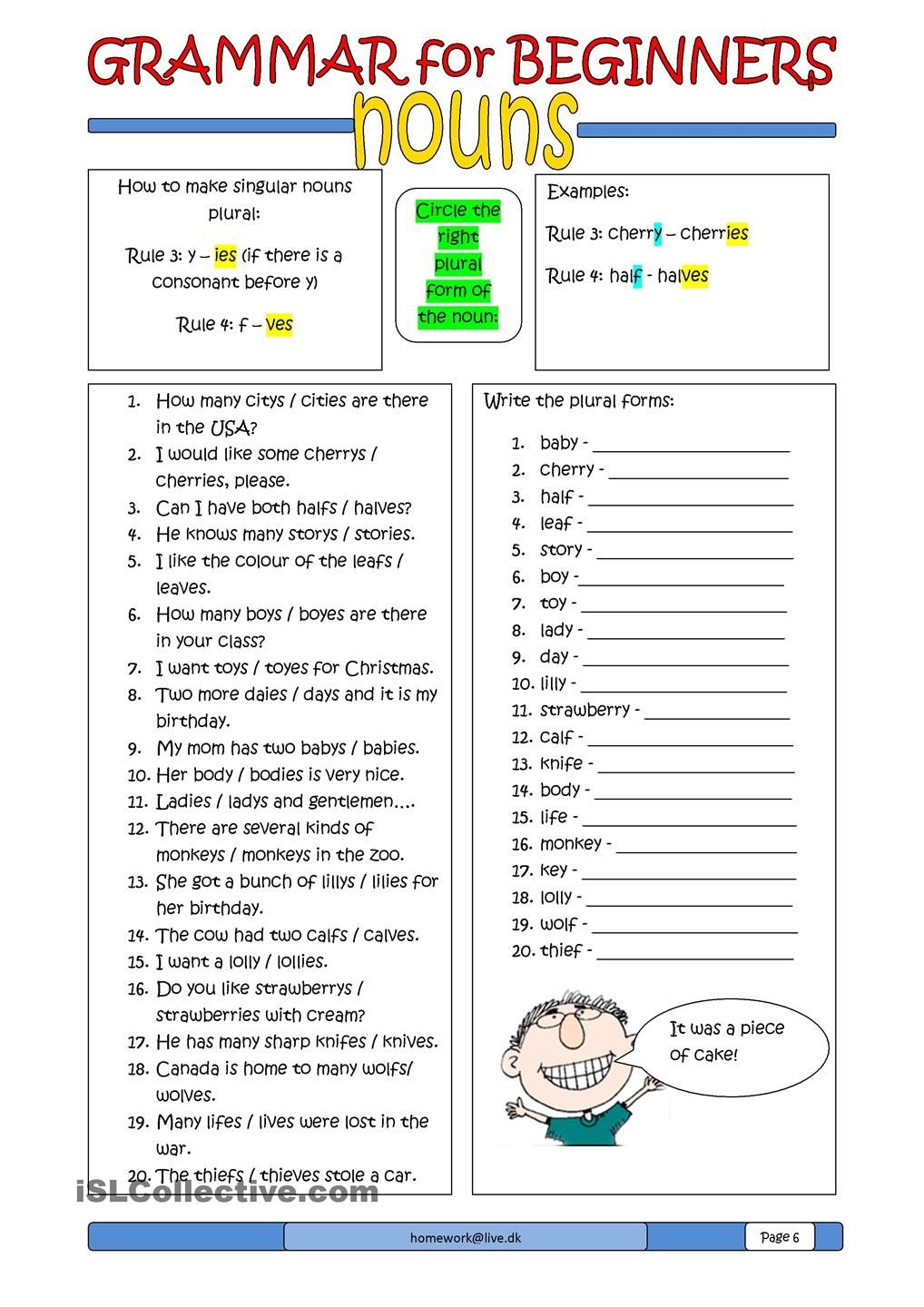

How to Effectively Use Adults Grammar Worksheets
Simply completing worksheets isn’t enough; strategic engagement is key to transforming practice into proficiency.
- Assess Your Needs: Before diving in, identify your weakest grammar areas. A diagnostic test or simply paying attention to recurring errors in your own writing and speech can guide your focus. Don’t try to master everything at once.
- Set Realistic Goals: As an adult with a busy schedule, consistency trumps intensity. Aim for short, regular sessions (e.g., 15-30 minutes daily or every other day) rather than marathon study sessions once a week.
- Understand, Don’t Just Memorize: After completing an exercise, review the answer key. For every mistake, go back to the rule explanation. Understand why an answer is correct or incorrect. Rote memorization of answers won’t lead to true mastery.
- Integrate with Other Learning Methods: Worksheets are a fantastic tool, but they are most effective when part of a broader language learning strategy.
- Read actively: When reading books, articles, or online content, pay attention to how grammar rules are applied. Notice sentence structures, punctuation, and verb tenses.
- Write regularly: Apply the grammar rules you’re learning in your own writing – emails, journal entries, short stories, or professional documents. The act of producing language is crucial.
- Speak with awareness: When conversing, try to consciously apply the grammar rules you’ve practiced. Don’t let the fear of mistakes paralyze you, but strive for accuracy.
- Review and Revisit: Grammar concepts need regular reinforcement. Periodically revisit older worksheets or topics to ensure the rules remain fresh in your mind.
- Use a Dedicated Notebook: Keep track of common errors and new rules in a personal grammar notebook. This personalized resource can be invaluable for quick reference.
- Find a Study Partner or Group: Discussing grammar rules and completing exercises with others can provide different perspectives and reinforce learning through explanation.
Beyond the Worksheet: Applying Grammar in Real Life
While adults grammar worksheets provide the structured practice needed to internalize rules, the ultimate goal is to apply these rules naturally in real-world communication.
- Proofread Everything: Make it a habit to proofread emails, messages, and documents before sending them. Use grammar checkers as a first pass, but always do a manual review, paying attention to the specific grammar points you’re working on.
- Seek Feedback: If possible, ask a trusted colleague, friend, or tutor to review your writing or listen to your speech and provide constructive feedback on your grammar.
- Analyze Errors: When you make a mistake, don’t just correct it; analyze it. What rule did you violate? Why? This meta-cognitive approach deepens understanding.
- Practice Active Listening: When listening to native English speakers, pay attention not just to the words, but to the grammatical structures they use.
Where to Find Quality Adults Grammar Worksheets
Fortunately, a wealth of high-quality adults grammar worksheets are available, many of them free.
- Educational Websites:
- BBC Learning English: Offers a wide range of grammar exercises, explanations, and quizzes tailored for adult learners.
- British Council LearnEnglish: Similar to BBC, with excellent resources for various levels.
- ESL/EFL Websites: Many sites like ESL-Lounge, EnglishClub, and Agendaweb provide extensive free worksheets categorized by grammar topic and level.
- Grammar Bytes!: Known for its clear explanations and interactive exercises.
- Textbooks and Workbooks: Many published grammar textbooks (e.g., "English Grammar in Use" by Raymond Murphy, "Practical English Usage" by Michael Swan) come with accompanying workbooks or embedded exercises that are perfect for self-study.
- Online Learning Platforms: Platforms like Khan Academy, Coursera, and edX offer grammar courses, some of which include downloadable worksheets or interactive exercises.
- Language Tutors/Teachers: A good tutor can provide personalized worksheets and exercises tailored to your specific needs and learning style.
- Library Resources: Public libraries often have a selection of grammar workbooks and English language learning materials.
Conclusion
Achieving grammatical precision in English is an ongoing journey, but one that yields significant rewards in both personal and professional spheres. For adults, who bring a unique set of needs and motivations to the learning process, structured and targeted practice is crucial. Adults grammar worksheets serve as an indispensable tool in this endeavor, offering a focused, practical, and efficient way to identify and rectify grammatical weaknesses, reinforce understanding, and build confidence. By strategically incorporating these worksheets into a holistic language learning approach, adults can systematically enhance their English proficiency, opening doors to clearer communication, greater opportunities, and a more profound engagement with the English-speaking world. The investment in mastering grammar is an investment in oneself, and the humble worksheet is a powerful catalyst in this transformative process.
